Tadanobu Asano: the interview
‘That was mad... It's like they took my life and turned it into a movie.’
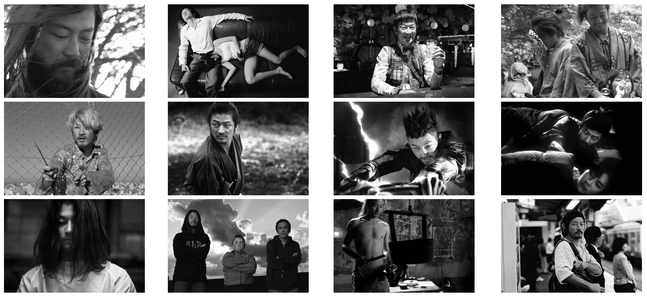
Posted: Thu Jul 07 2011
Read part 1 of Tadanobu Asano: the interview
Do you have any ambitions to appear in other foreign-language films, other than English ones?
If I get asked, I'll give anything a try.
When Eiji Okada did Hiroshima, Mon Amour, he had to learn the entire script phonetically. Do you think you could do that kind of film?
I think I could, but the best thing would be to overdub the dialogue. Say, I could appear in a French film, and rather than have to speak in French myself, they could get a French actor to dub the dialogue afterwards. I think getting a professional to record it would be better than having to listen to my beginner-level French.
If you're worrying about the language, it must be hard to concentrate on your performance.
There are lots of actors who insist on speaking the lines themselves, and you hear the same thing from directors and the audience, but I don't think it's worth getting het up about. I think it makes more sense to use someone who speaks that country's language: that's what voice actors are for.
Do you feel that your approach to acting is more minimal than most of your peers?
Yeah. That used to be the case, but I've come to see it as a bad habit, and I'm doing my best to get away from it now. I think you have to get out of your comfort zone. I used to hate [overacting], but now I go all-out. I'll think I'm overdoing it at the time, but when I see the finished film I realize it didn't come across like that. If I don't change my ways, I won't get to experience worlds that I haven't seen before. It depends on the film, but...
What attracts you to roles like the one in Villon's Wife?
In the films I did in the '90s, a lot of the characters were younger, naïve people whose thoughts weren't particularly clear. I don't think I could've done a film like Villon's Wife when I was younger. I have a family, so I think about those things a lot... The character in the film is a really bad person, so I wondered if I could play someone like that. I think it's a role that I only could have played now, and I'm really grateful that I had the opportunity.
You don't drink alcohol, right? How did you connect with the character?
A lot of the people I know drink, so I just copied them.
Do you go back and watch your old films?
I do, yes.
How does that feel?
When I watch them now, I realize I did things then that I couldn't do now.
For instance?
I was keeping things very simple and minimal – I don't think I could do that now. I don't think that's what I'm aiming for any more. I'll know that there wasn't really anything going through my mind when I was performing, and I'll be like, 'This guy's amazing.'
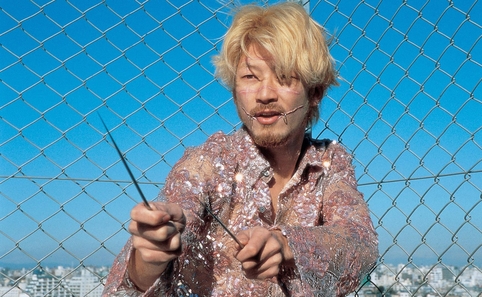
Ichi the Killer: ' If I was asked to do it again now, I'm honestly not sure I could pull it off' (C)山本英夫/小学館・「殺し屋1」製作委員会2001
I'm going to reel off a few of your old films, and see what comes to mind. First up, Fried Dragon Fish.
That was all about the director. The first time I met Shunji Iwai, we both definitely felt something. That was at the audition, but... When I got the script, I felt it was the first time I'd read something so interesting. When I went to the audition, I'd completely become that character. Our eyes met when I walked in, and I felt something inside me, and I think he felt the same way. It was a miraculous meeting.
Okay: Taboo (Gohatto).
Up until that point, I'd only done films like Fried Dragon Fish, so I thought I was at this level [holds hand low], but not at this level [holds other hand much higher]. Making the leap from here to here was quite an experience.
Next: Ichi The Killer.
That was a really interesting one. I was really selfish then, and the director and other people embraced that. I think that selfishness came across really well in the film. If I was asked to do it again now, I'm honestly not sure I could pull it off.
Vital.
Vital was very serious. I loved the script, and I'd always wanted to work with Tsukamoto. I didn't compromise, but now I wonder if maybe I should've done.
Okay… Rampo Noir.
That was mad. My life at that point was messed up, and the content of Rampo Noir itself was messed up, so I think that's reflected in the film. It's like they took my life and turned it into a movie.
Do you like those kinds of physical roles?
I like them. The first segment, 'Mars Canal', was filmed in Iceland and I'm not wearing any clothes... that kind of thing's fun. But tough.
Finally: Last Life in the Universe.
That was miraculous. I went to the Deauville film festival in France, and when I was invited to lunch, I ended up sat next to Pen-Ek Ratanaruang. We didn't know anything about each other at the time: I told him I was an actor from Japan, he said he was a director from Thailand. He had a film screening at the festival and told me to go and see it if I was interested, and I had some free time on my hands so I went. I really enjoyed it, but I didn't see him again during the festival, and that was that. I'd done a lot of work with Christopher Doyle in Hong Kong, and there was a producer – he's passed away, sadly – called Wouter [Barendrecht]. I was always meeting them at Cannes, so I got to know them well. I met Wouter at Pusan – or maybe it was a festival in Germany? – and he said, 'Asano, let's make a film.' I said, 'Sure, let's do it.' 'I've got an interesting director,' he said. 'Who's that?' I asked, and he said, 'It's a Thai guy called Pen-Ek Ratanaruang.' 'Oh, I met him in France,' I said. 'What, you know the guy? Let's make a film with him.' Without even knowing it, I agreed to do a film with a bunch of people I'd met at film festivals, and that was the end result. We got along, and it was like we'd all been miraculously drawn together. Those were great times. I had a lot of fun making that film.
They're screening Eli, eli, lema sabachthani? tonight at Baus Theater as part of the Bakuon festival. Have you been doing much music recently?
Yeah, I'm keeping myself busy. I actually went to Baus last night.
Really? What did you watch?
The Harder They Come.
How was it?
I enjoyed it. It's a really powerful film. I'd seen it on video a long time ago, but... The way it's filmed is a total mess.
That was the first ever Jamaican film, wasn't it?
It's like it was made by students, just this rough, raw, self-produced movie. Technically speaking, that is. But that's what makes it so powerful. It's got an amazing strength – it makes our serious style of filmmaking look ridiculous. I realized it's okay if you don't focus on the details.
I read somewhere else that you like films with prominent soundtracks. Which is your personal favorite from your own filmography?
The ones I did with Sogo Ishii were fun. I was in a band with the director, too. I think the soundtracks for Electric Dragon 80,000V and Gojoe were great.
Thor is currently on general release. Tadanobu Asano also appears in Koki Mitani's Once in a Blue Moon, due out on October 29
Part 1 | Part 2
Tweets
- About Us |
- Work for Time Out |
- Send us info |
- Advertising |
- Mobile edition |
- Terms & Conditions |
- Privacy policy |
- Contact Us
Copyright © 2014 Time Out Tokyo










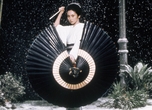
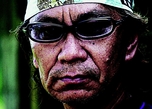
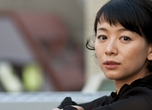

Add your comment